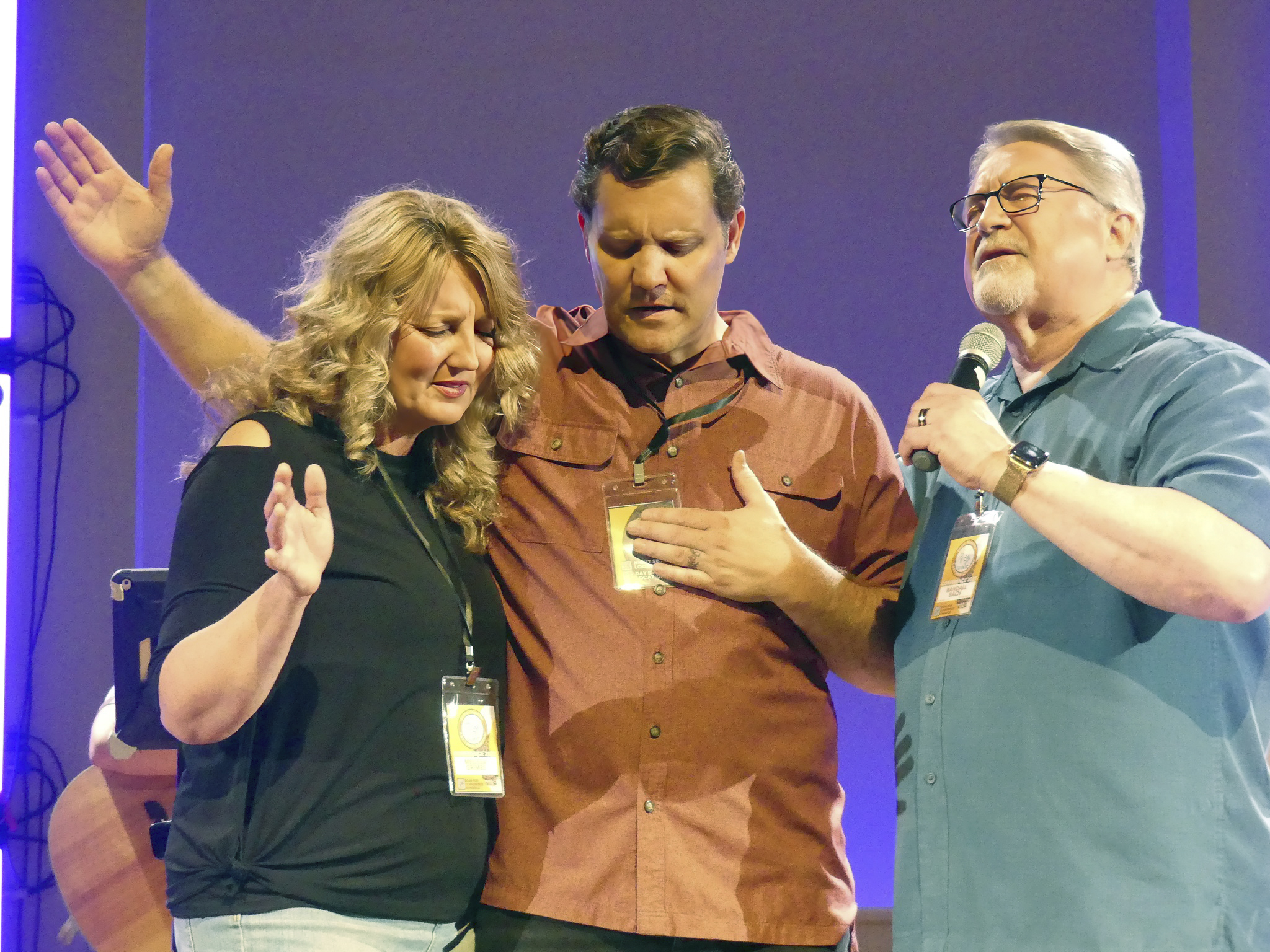Spotlight
How to Join and Leave a Church
Published
2 years agoon
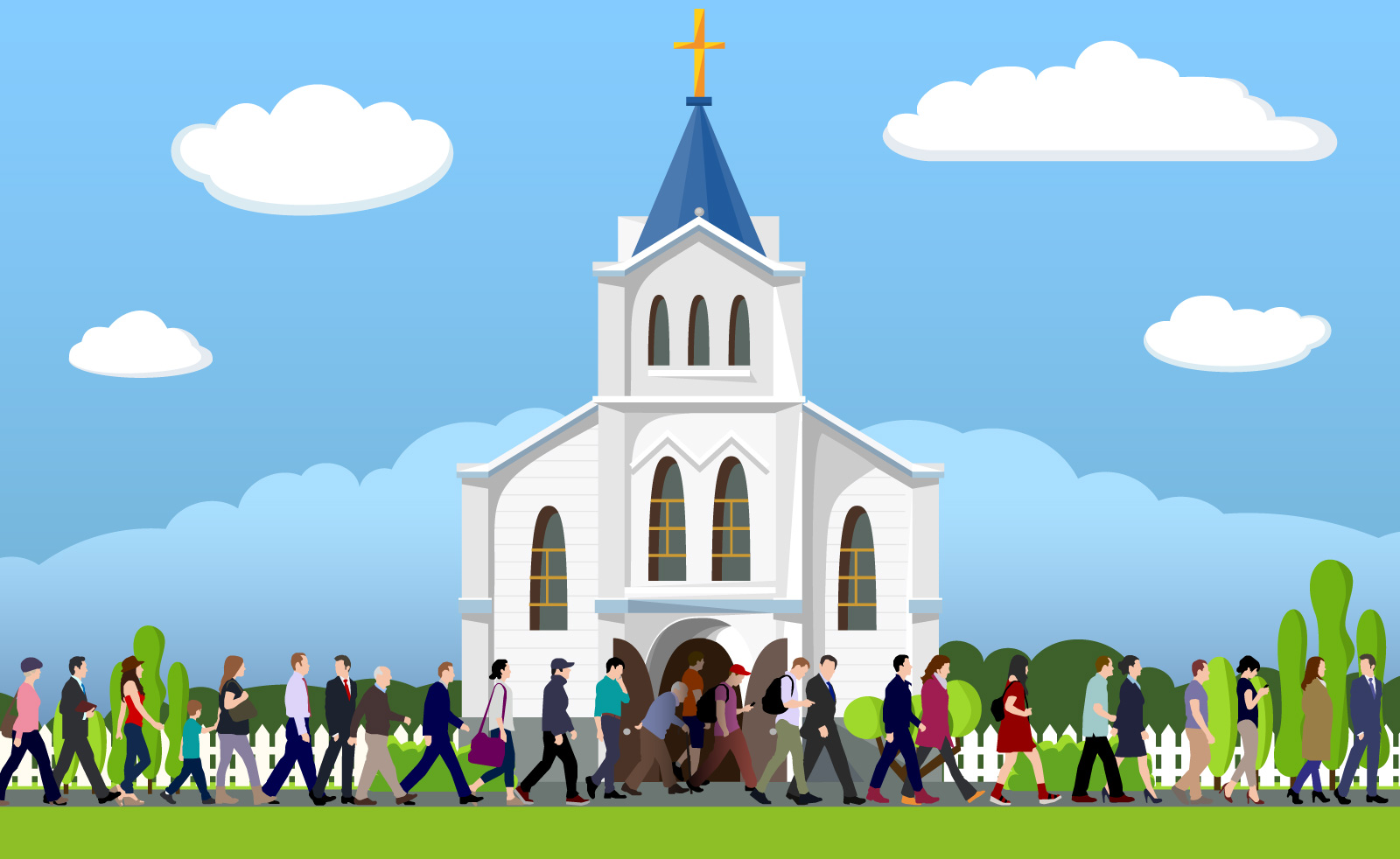
By Tom Rupli
Sing to God, sing praises to His name;
Psalm 68:4-6, NKJV
Extol Him who rides on the clouds,
By His name YAH,
And rejoice before Him.
A father of the fatherless, a defender of widows,
Is God in His holy habitation.
God sets the solitary in families.
From the premise that God Himself sets people into church families (His holy habitation) comes the logical conclusion that since God cares about how people come into a church, He also cares about when and how they leave. Certainly, people will join churches and they will leave churches, but the reasons why they come and go can greatly influence the health and stability of a church family. God’s Word provides great relational principles that provide all the body of Christ needs to stay healthy, and Jesus stressed these principles more than any other. He said, “Your love for one another will prove to the world that you are my disciples” (John 13:35, NLT).
In a time when the very foundations of cultural and political stability violently shake, God has called the Church to withstand the winds and storms of disruption that pound the world. Jesus declared, “Upon this rock I will build my church; and the gates of hell shall not prevail against it” (Matthew 16:18, KJV). The value of the church of the Lord Jesus Christ cannot be overstated; it must be a safe place of refuge and security for the fatherless, the widow, and every other person who seeks shelter from the storm while standing as a united and mobilized force for good. The body of Christ must be handled with great care.
Recently a close pastor friend of mine called. With anguish in his voice, he described how a key leadership couple abruptly resigned their ministry position and declared without explanation that they were leaving the church. Word of their departure swept through the church body, and the difficult question of “why?” added confusion to the pain. Sadly, most of us who have been in the church for a while know the pain that this pastor and church suffered because of the sudden loss of people they love.
How believers enter and leave church families must take high priority in our discipleship training process! The Bible reveals many principles that can proactively prevent “church family dysfunction.” Possibly the best example of a biblical model to a proper “joining and leaving” can be found in the book of Acts in the story of the relationship between Saul (later called Paul) and a Christ-follower named Barnabas. After Saul, the persecutor, received Christ on the road to Damascus, Barnabas took him under his wing, mentored him, and advocated for him. For that reason, the church, despite their initial misgivings, received Saul into fellowship, and the Holy Spirit sent the two men to Cyprus. God did incredible things through their partnership, and the church grew. Side by side the brothers ate together, laughed together, and suffered together. And the Holy Spirit worked marvelously through them.
Build the bridge of relationships in people’s lives so strong that the bridge can handle the inevitable weight of conflict.
Dr. Kelly Silvers
However, an incident occurred, and they disagreed vehemently about the best approach for how the ministry should proceed. These two great men simply could not reconcile their differences. However, the manner in which they left each other provides a model for us today. Their argument did not revolve around wounded pride or offended feelings, but on different callings and spiritual giftedness. After meeting face to face they still could not agree, and Barnabas and Saul went their separate ways as brothers in Christ. Instead of the incident hurting the church, the church grew exponentially stronger because God honored their different callings and the way they parted ways. There most certainly is a right way and a wrong way to leave church relationships that can ultimately strengthen or diminish the ministry of God’s Kingdom on earth. The Spirit wants us to get this right!
When my wife, Nancy, and I stepped into our first lead pastorate role, we quickly realized that like many churches, our church had its share of dysfunction. People were leaving more often than they were joining! OUCH! As most pastors can attest, it hurts when people leave the church! Thankfully, my mentor, Dr. Kelly Silvers, had taught me a vital principle which provided a catalyst for our church to gain health. He said, “Build the bridge of relationships in people’s lives so strong that the bridge can handle the inevitable weight of conflict.”
One of my greatest regrets stems from a phone call I received from a key leader in our church. She had a deep misgiving about aspects of our youth ministry. Her perspective stemmed from painful incidents from her past which I was aware of. But instead of grieving with her over her childhood and reassuring her that our youth ministry had safeguards in place, I grew defensive. The more defensive I got, the more offensive she got, and you know the rest of the story. Goodbye! It still hurts!
From the very get-go of human relationships, God said, “It is not good for the man to be alone” (Genesis 2:18). If an individual visiting a church family leaves the gathering feeling as alone as when they came in, they more than likely will not return. If a person in a church family carries pain into the church and that pain is not ministered to, they too will leave as alone as when they came in. Jesus told us to make the main thing the main thing: Love God and love your neighbor as you love yourself.
ALL THE LAW AND THE PROPHETS HANG ON THESE TWO COMMANDMENTS! (Matthew 22:35-40).
Whoa! Are you telling me that all the “doctrinal and behavioral principles” of the Bible hang on the “relational nail” of loving God and one another? Yes, and as Dr. David Ferguson of the Great Commandment Network teaches, “As we increase care in the church, conflicts will decrease.” Building the bridges of relationships in the church must take high priority in our discipleship process. Let’s explore a few principles.
- God leads the solitary into church families. So how do you know that God is calling you to join a church? The Holy Spirit might be tugging at your heart. “Speak, Lord, I am listening!” Have you heard confirmation from the Scripture? Have you explored the doctrines and ministries of the church? Could you commit yourself to joining this local body of believers? Do you have a strong confirmation that this is God’s will? Are you willing to place your life (and family) under the spiritual covering of this local church? Have you spoken with the pastor of the church, asked questions about the church, and allowed the pastor to get to know you? “In all of your ways acknowledge Him, and He shall direct your paths” (Proverbs 3:6, NKJV). Joining forces with a local church should be a decision based on the leading of the Lord and should be strongly confirmed in your heart of hearts.
- God also leads people to new places of ministry. In His strategy, sending people out from a church must be a Holy Spirit thing. This decision must be made with great confirmation! How should one leave a church? One must leave with honor! “Be kindly affectionate to one another with brotherly love, in honor giving preference to one another” (Romans 12:10, NKJV).
Meeting with your pastor to communicate the reasons for your decision to leave brings honor to a difficult process. Explain the reasons why you feel God is moving you to a new church body. Ask for the pastor’s prayer and confirmation, and carefully evaluate what the pastor says. A good pastor cares for the people in the church. I will never forget the day Nancy and I had to approach our dear pastor who had taught us so much about the love of Jesus. He had prophesied over us, mentored us, and had been nothing but good to us. But we knew in our spiritual “knower” that a season of transition had come. We honored our pastor by asking for prayer and confirmation about our decision, and he blessed us and sent us out.
Pastor and other leaders, consider these thoughts when developing a culture of honor:
- Pray for every member of your church body weekly, including the children. On Sunday, you will remember their names (which is huge), and by praying for them, the Holy Spirit will speak to your heart about trouble; you will notice when they are not there.
- Call those whom you have not seen lately and ask about their well being.
- Offer a “six-month leave of absence” to people who want to leave the church. Ask them if you might touch base with them periodically. Often they come back because you care.
- Touch base with as many people as possible at every service.
- Teach the church how to remove one another’s aloneness by meeting the key relational needs of compassion, attention, respect, and encouragement. (Great Commandment Network has resources and strategies to meet key relational needs.)
- Have a weekly greeting time at each service and teach people to love one another.
- Proactively teach in membership classes or from the pulpit how to properly join and leave a church. (John Bevere’s classic book and video series The Bait of Satan: Living Free from the Deadly Trap of Offense is an excellent resource.)
- Encourage people to never leave a church because of an unreconciled offense. (See Ken Sande’s book The Peacemaker: A Biblical Guide to Resolving Personal Conflict.)
- Teach conflict resolution (Matthew 5 and 18).
- Teach how to properly ask for forgiveness and how to give forgiveness.
- As a matter of respect, follow the protocol of calling the former pastor of the church from which a new member came.
As the world teeters, the church must strengthen herself as the bride of Christ! We are a people of honor, love, commitment, and devotion to Jesus. The church must honor Him in all that we do. How to join and leave a church must represent our love for Christ. Even when the dust settles, a strong, healthy church knit together by covenant bonds will still be standing.
About the Author
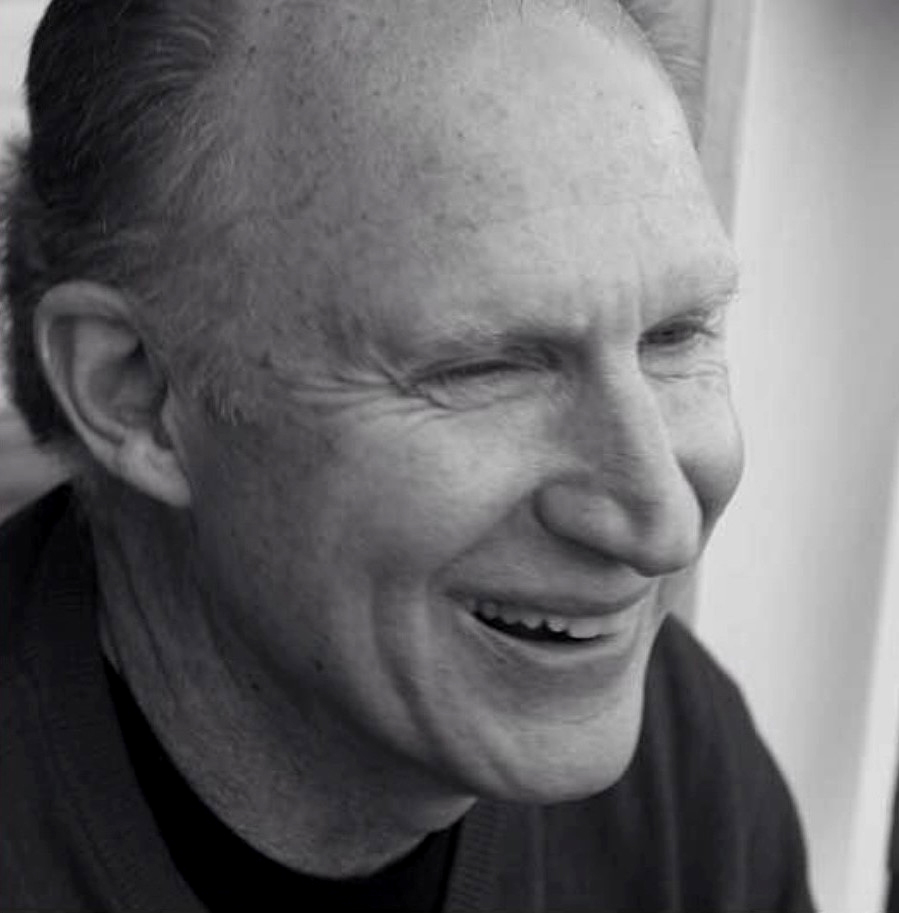
Tom Rupli ministered at New Life Church in Petersburg, Michigan, for 30 years prior to becoming the regional executive director of Open Bible East Churches. He and his wife, Nancy, are now thoroughly enjoying serving as interim pastors at River of Life Community Church in Dundee, Michigan.

I am Shane Blackledge, and my wife Amber and I are the founding pastors of Cultivate Church in St. Louis, Missouri. My story is one of transformation and God’s grace, showing how He can use anyone to build His kingdom.
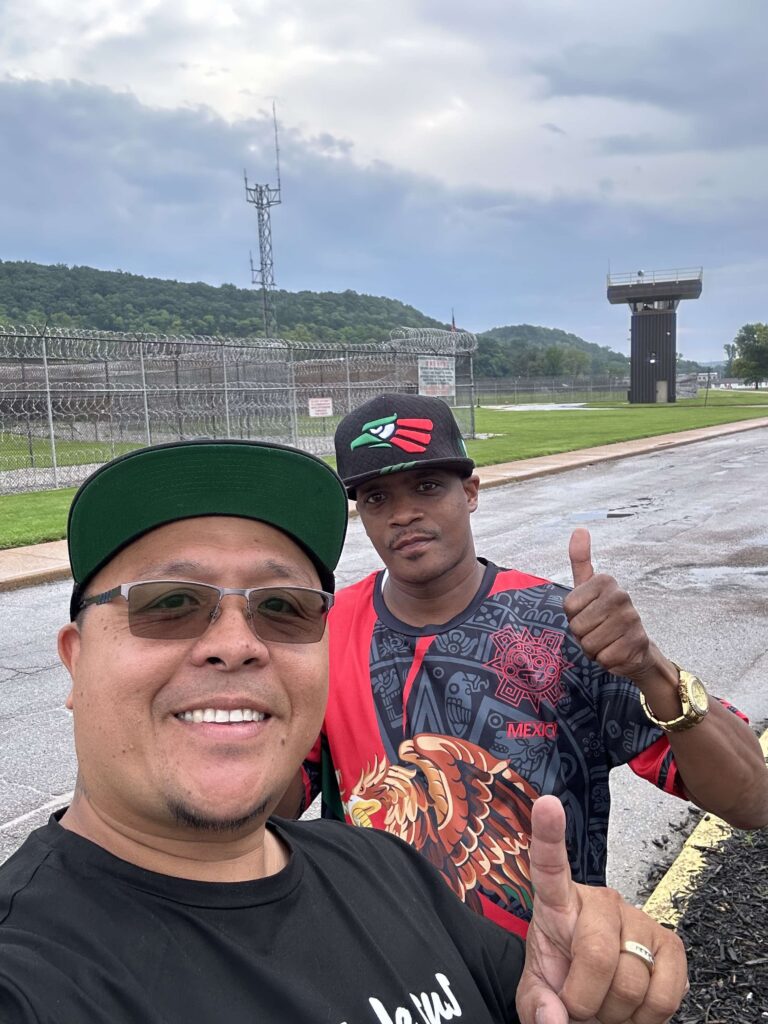
I was born in Colorado at the Air Force Academy Hospital. My father served in the Vietnam War, and while stationed in Taiwan, he met my mother and they got married. When I was six, my parents separated, and my mother moved back to Taiwan, leaving me devastated. As a kid, I faced racism and extreme poverty. I battled depression, anxiety, and thoughts of suicide. I started smoking and drinking at eight years old, joined a gang at age thirteen, and was using meth daily by the time I was fourteen.
At age seventeen, I was arrested and sentenced to thirty years in prison for selling drugs. I found myself in my jail cell wanting to end it all. On my night stand I found a Gideon Bible, and I opened it right to John 3:16. As I sat there reading, I realized I was a sinner, but that God created me and I had a purpose to live. I repented and asked Jesus to forgive me. I felt the Father’s love and the presence of the Holy Spirit in an indescribable way.
After my release, I struggled transitioning back into society (finding a job, paying rent, and finding a church that would accept me). I was discouraged and soon relapsed on meth. During the years of my addiction, I was sent to five prisons and was incarcerated for over six years. In 2006, after nearly dying from an overdose, I woke up from a coma and realized God had saved me from death. That day I fully surrendered to Christ, and that’s when my real transformation began.
In 2006, after nearly dying from an overdose, I woke up from a coma and realized God had saved me from death
God restored what addiction had taken from me. I have now been clean from meth for seventeen years. In 2013, I married Amber. We started attending Waverly Life Church, served as youth leaders, and eventually started a Celebrate Recovery program. In 2022, God called us to plant Cultivate Church in St. Louis, Missouri. We resigned from all ministries and jobs and sold our home. In April of 2023, we started house church gatherings which quickly grew in Christ and numbers. We launched our first Sunday gathering in October of 2023.
Today, we are a church without walls, modeled after the early church in Acts. We have regular church gatherings geared towards discipleship, street ministry, addiction recovery, Christian hip-hop events, prison ministry, and nursing home visits. We work with local treatment centers and recovery programs to support and mentor people. We have partnered with churches and ministries to organize monthly inner-city mission trips.
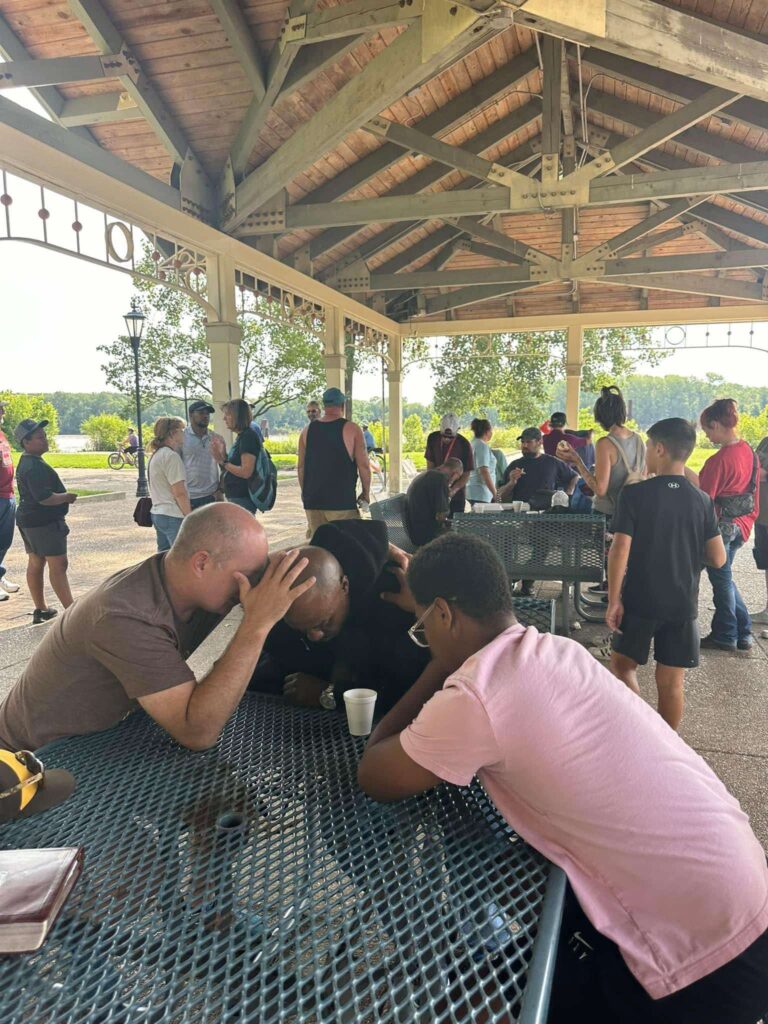
One way God has used my story is with my podcast: “Kingdom Minded,” which streams into 1000 prisons across the country on over one million inmate tablets. In partnership with the Edovo learning app, the podcast focuses on sharing testimonies and teaching Biblical principles.
Looking back, I am amazed at what God has done. In just a year our church has grown from a small group in our living room to a thriving community, passionate about sharing God’s love. Amber and I are excited about the future. We believe God is just getting started with Cultivate Church.
He can use anyone, even a former addict and convict like me, to build His kingdom.
My story and the story of Cultivate Church are really about God’s faithfulness. He can use anyone, even a former addict and convict like me, to build His kingdom. All the glory goes to Him.
To donate toward our prison ministry and homeless outreach, visit wearecultivatechurch.org or check out our Blessing Bags Gift Registry at HERE.
About the Author
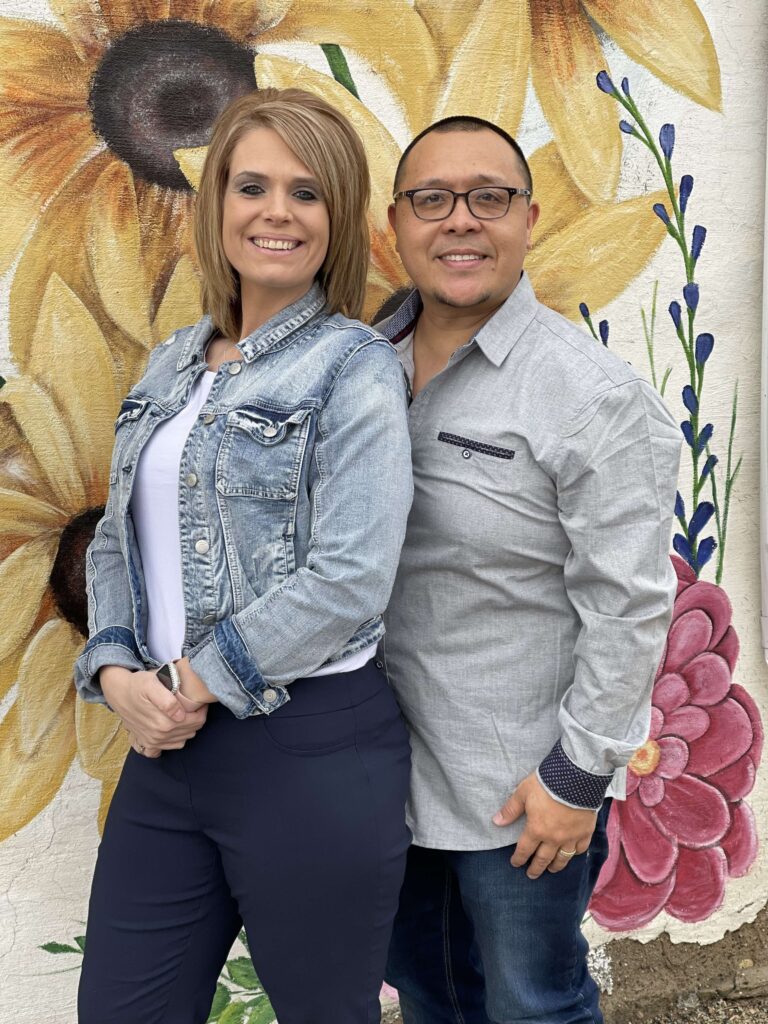
Shane R. Blackledge
Shane R. Blackledge is the co-founder and senior pastor of Cultivate Church. He and his wife Amber started Cultivate Church in their home in 2023. Today, the church is known for spreading the Gospel and being the church without walls. Shane’s podcast, “Kingdom Minded,” is available in over 1000 prisons on inmate tablets on the Edovo Learning App. Through testimonies and Bible principles, the podcast aims to teach, inspire, and equip Christians to live their best life now. Shane is an author and speaker, and his books From Prison to Purpose and Overcoming Codependency are available on Amazon. Shane and Amber have four children and live in St. Louis, Missouri.
Spotlight
God’s Greater Plans: From Infertility to Three Babies in One Year
Published
4 months agoon
July 1, 2024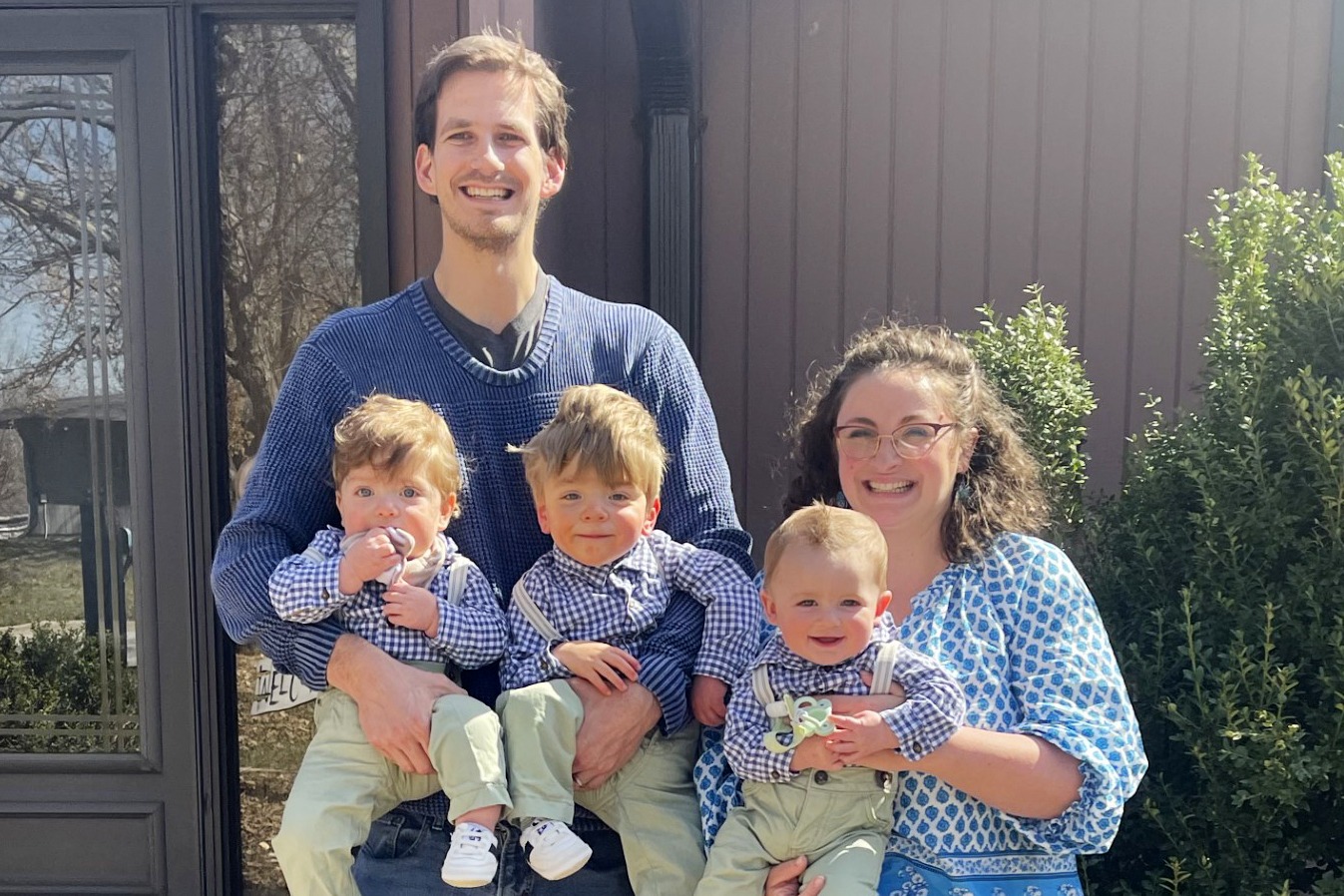
When my husband and I married in July of 2019, it was with a firm understanding of our shared life goals and dreams, and kids were a big part of our plans. In our minds we would have our biological children first, and then when we were ready, we would pursue adoption. But the Lord always has a better plan than ours, doesn’t He?
After we had been married for two years and still had not conceived, we discovered that I was having fertility issues. I saw multiple doctors and was prescribed several medications to help with conception. During this time, I remember telling my husband it felt like we were living in “limbo,” not getting anywhere closer to having a family. Because of our powerful desire to start a family soon, we decided to divert from our original plan and become foster parents.
“Had I conceived when I wanted to…we never would have met Noah and Leif, our precious sons.”
After an entire summer of preparation, our license went active, and we took a couple of short-term placements. These were our first experiences as parents and had us seriously questioning our parenting abilities! But in December of 2022 we got a call about a four-month-old boy named Noah. Noah was in the ICU with significant health concerns. We weren’t given any idea how long he would stay with us or what his life would look like, and we were scared to commit to taking on a placement that held so much uncertainty. After visiting sweet Noah in the hospital and spending considerable time talking and praying about it, we decided we wanted to take this baby and give him a loving, nurturing home — something he had not yet experienced in his short life.
Noah joined our family on December 16, 2022, and immediately, I became remarkably busy caring for him and taking him to all his appointments. We were so busy, in fact, that thinking of my own fertility was put on the back burner; it just wasn’t my priority anymore.
On January 18, 2023, after a routine follow-up for Noah at Blank Children’s Hospital, we got a call from a surgeon informing us that Noah’s brain was bleeding and we needed to rush him to the hospital for emergency brain surgery. The surgery was successful, and I stayed with Noah during his recovery in Iowa City, two hours from our hometown. We were finally discharged and returned home on January 22. During my time in the hospital with Noah, I did not have any of my fertility medications or supplements (but like I said, I wasn’t focusing on that so much anymore).
So many children have endured brokenness and trauma, and they need to be loved. If we as the church do not show them the Father’s love, who will?
Little did I know that the Lord had everything perfectly planned. On February 2, just eleven days after our hospital discharge, I found out I was pregnant. We were overjoyed!
But God wasn’t done surprising us. A few short weeks after discovering my pregnancy, we received word that Noah’s biological mother was pregnant as well, due to have a baby boy in a few months. We knew immediately that if this baby also needed to be placed in foster care, we wanted him to be with his brother, so we told our social worker we would care for him. Noah’s baby brother Leif was born in May, and just five months later, our son, Sven, was born in October. Overall, when we brought Sven home from the hospital, we had Noah (fifteen months), Leif (five months), and Sven (newborn).
In December of 2023, we were able to officially adopt Noah and Leif, ending their days of foster care and guaranteeing them a safe, loving family for a lifetime. It has been a crazy and chaotic year, but I would not trade it for the world. At the time of this writing, their ages are twenty months, ten months, and six months. Our days are filled with exploring new things and reaching new milestones, and our home is brimming with baby gear (think three car seats, three highchairs, a triple stroller…you get the picture).

I honestly believe God planned our entire story. I couldn’t see it at the time of infertility, but had I conceived when I wanted to, we never would have entered foster care, and we never would have met Noah and Leif, our precious sons. Going through this experience has given me so much assurance that God’s timing is always perfect.
If you are in the midst of infertility, I know it can be hard to hear “God has a plan!” But as someone who has seen His perfect plan come to fruition, I encourage you to go to God in prayer. Tell Him your desires, your frustrations, and your hurts, but also consider asking God what He wants from you in this season of waiting. Maybe He has called you to foster, adopt, or minister to the next generation through your church ministries.
Perhaps you haven’t experienced the struggle of infertility, but you do have a heart for the next generation. How might God use you to help disciple and love on kids around you? So many children have endured brokenness and trauma, and they need to be loved. If we as the church do not show them the Father’s love, who will?
About the Author
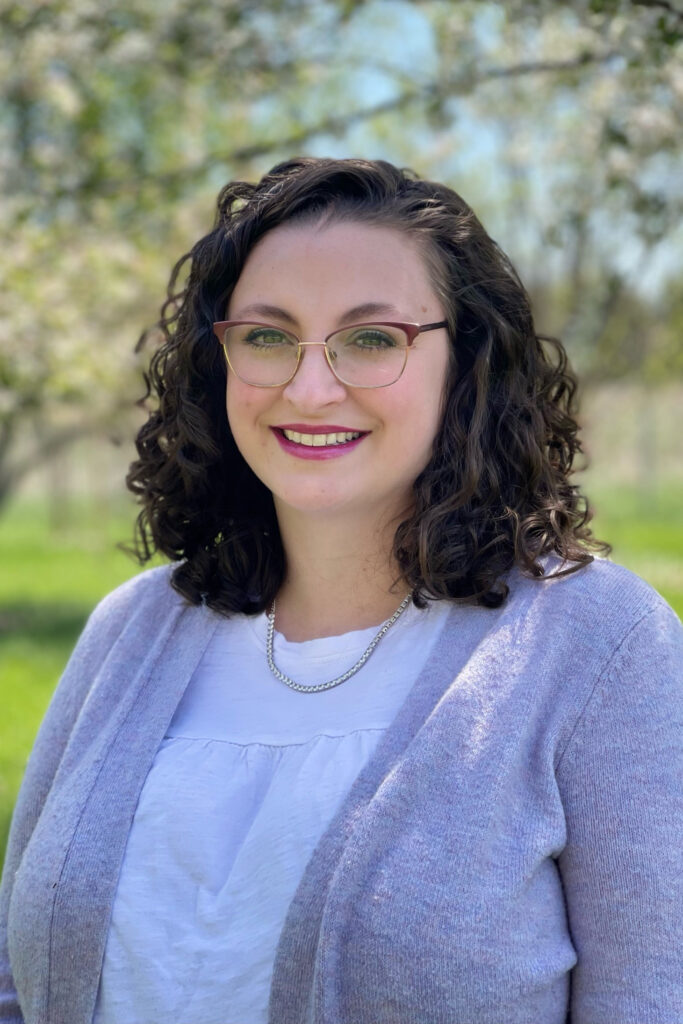
Natalie Larson
Natalie Larson has been a registered nurse at MercyOne in Des Moines, Iowa, for eleven years, working in both pediatrics and surgery. Her primary role now, however, is being mama to her three active sons. Free time has been hard to come by recently, but when Natalie finds a few moments of it, she enjoys baking, reading, and crocheting. Natalie and her husband, Alex, can be found at Journey Church in Urbandale, Iowa, on any given Sunday, where their boys are some of the most popular congregants.
Spotlight
The Community Table: Portland Open Bible Feeds Bodies and Souls
Published
6 months agoon
May 1, 2024By
Hannah Bemis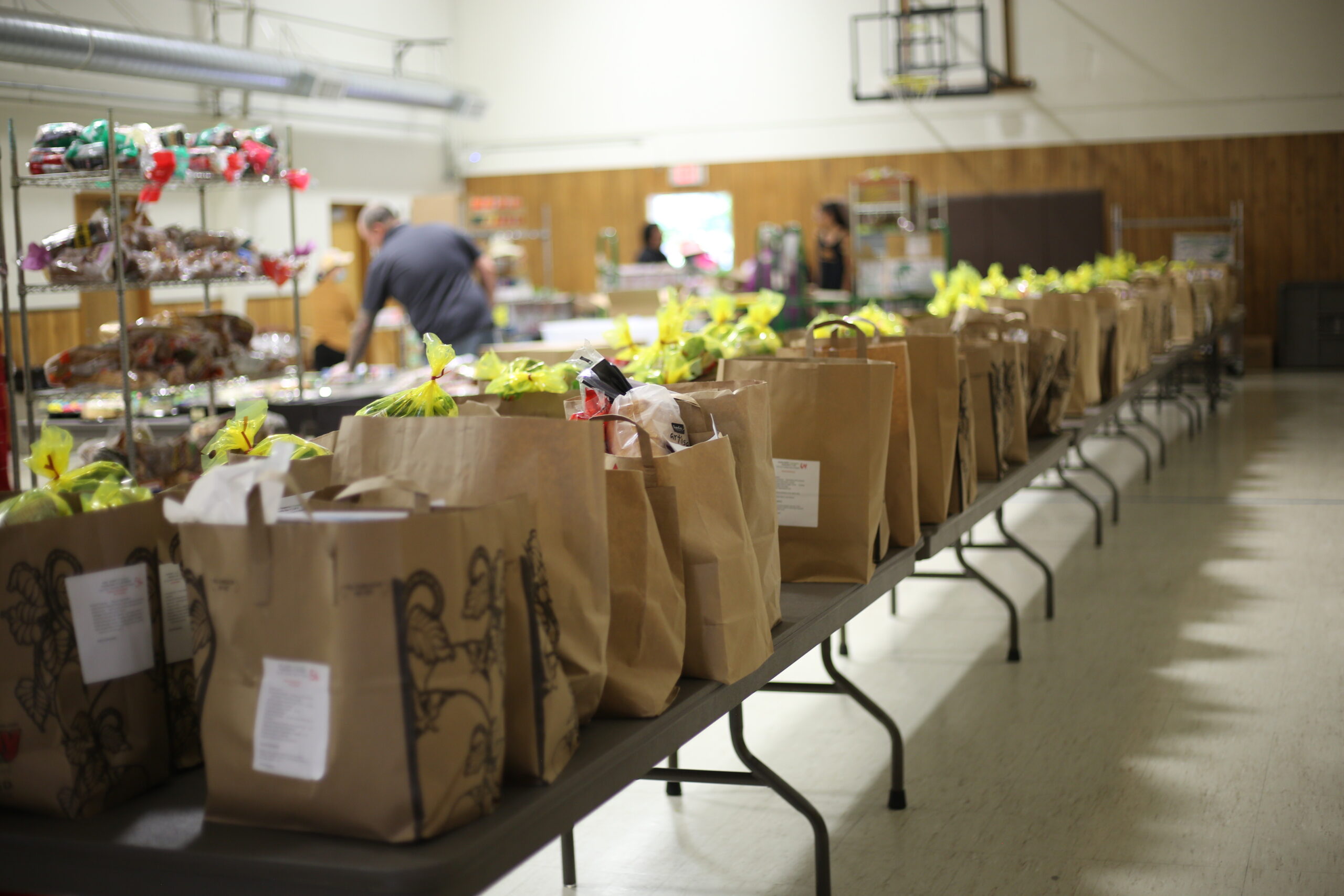
If you walk into the food pantry at Portland Open Bible (POB), you’ll see a beautifully diverse demographic that reflects the neighborhood in which it is planted. Chinese, Russian, African American, Hispanic, and White families all gather on Tuesdays and Thursdays, known in the community as “pantry days.” In addition to receiving food, they’re gifted with joy and a genuine kindness that is unusual for many of them.
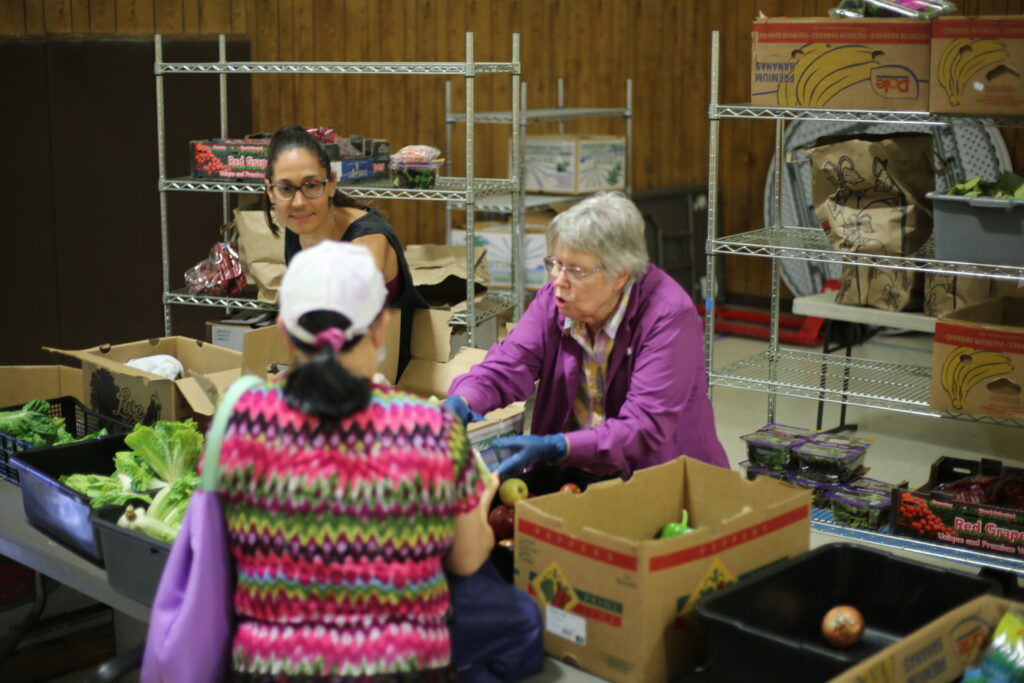
“It offers a level of humanity that they might not have had before,” said Pastor Aaron Brown. “People can say to themselves, ‘If I step on site at Portland Open Bible Church, I know that for one – people are going to be nice to me, and two – they’re going to try and help me with what I need.’”
Aaron and the food pantry team are going a step further, striving not only to give their community what it needs but also what it wants. When the pantry was in its beginning stages, the staff realized that too much of what was given away was being thrown away. They would find food thrown on the ground a short distance from the pantry, and knowing their program couldn’t be sustained with so much food waste, they were determined to solve the problem. As they began taking data on who their program was serving, noting the diverse ethnicities, they realized their food options didn’t meet the dietary needs of many of the ethnicities they were serving.
“We’re putting an end to food waste through client choice.”
“Our Asian families don’t necessarily want Ritz Crackers and Fruit Loops,” explained Aaron. The pantry developed a detailed intake form in which clients were surveyed not only on their demographics and family size, but on the types of food they most desire. This data allows the pantry to save money by purchasing only the food that is needed AND wanted by their community. “We’re putting an end to food waste through client choice.”
That’s not all. As of 2024, the pantry has begun a new program called “The Community Table.” In partnership with Providence health care, the pantry now provides weekly cooking classes with two professional chefs. Each meal is cooked from scratch with whole foods (provided free of charge to participants) and follows a recipe that was contributed by a member of the Portland community. They might cook a Russian meal one week and a Cantonese meal the next. “We have people from all cultures cooking foods from all cultures,” Aaron shared proudly. “It’s food they chose that comes with a story.” Classes are filmed, each recipe taught as a unique episode that includes the recipe’s contributor sharing the story of why that meal is meaningful to his or her family. Once all the episodes are filmed, food pantry visitors will have the option of receiving a video link for a weekly episode along with all the ingredients for that “meal of the week.”
“Everyone deserves to be fed, and to be fed healthy food.”
“I was skeptical at first, but the numbers keep growing,” said Aaron. And he’s not kidding: the pantry has expanded from its initial service of 123 families in 2013 to currently serving 84,000 families.
So, how did it all begin? Aaron credits his mother, Betty Brown, with the idea for the pantry. In 2013 the church was experiencing repeated break-ins. Despite there being technology and other valuables to steal, the only thing taken was food. Betty gathered the staff one day and gave them a choice: “We can either keep reporting these break-ins or we can start feeding our community.” They decided to do the latter. What began with a few donated canned food items by church members developed into what is now a widely recognized program funded by million-dollar grants.
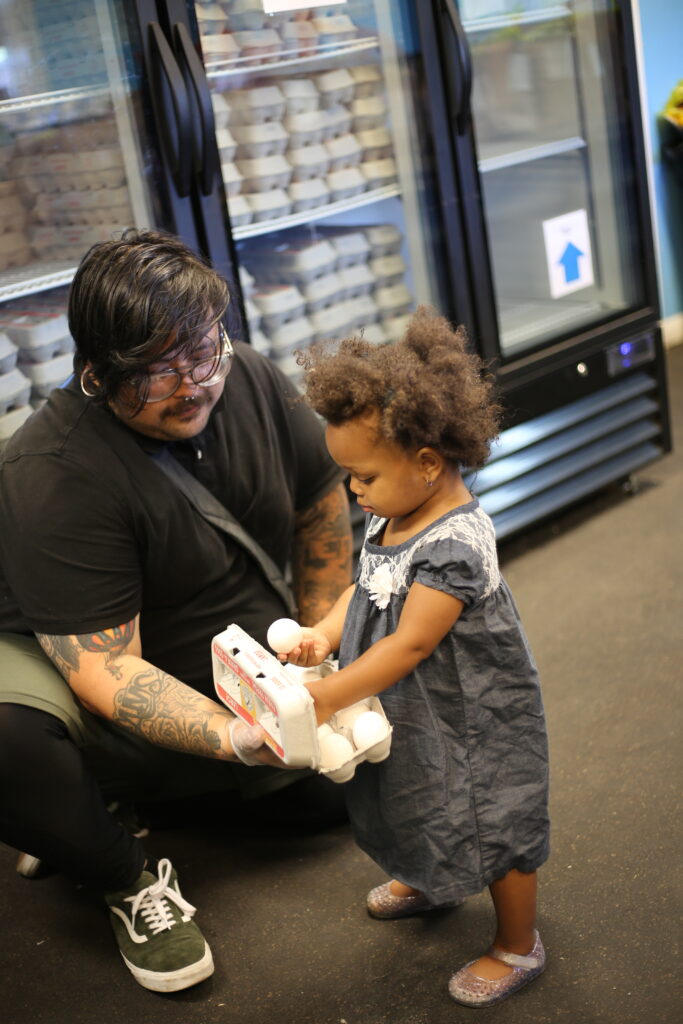
“Everyone deserves to be fed, and to be fed healthy food.” Aaron explained that their neighborhood is in an inner-city “food desert,” a technical term for a neighborhood without easy access to affordable and fresh food. These neighborhoods often have plenty of gas stations and convenience stores, but no grocery stores. Imagine being a single mom who must take city transportation to get to a grocery store in the next city over, then find a way to transport multiple grocery bags home, all with her five kids in tow. This is the reality of many families near Portland Open Bible. The pantry’s intake forms show that these families want healthy options; they’re just in a food desert where they can’t get it.
As Portland Open Bible nourishes its community, they are seeing physical nourishment carry over into the spiritual. “We try to be a beacon of light,” said Aaron. “We serve some of the nicest, friendliest people, and when they see you’ll be kind to them, they open up their whole life story. ‘I used to go to church…’ is what they’ll often say. I’ve seen former youth pastors show up, worship musicians, people high on whatever blasting worship music. They’re usually the most humble people just wanting food.” A lot of them showed up addicted, trying to get clean. They come volunteer at the pantry and get free food, then eventually end up becoming employees. “Overall,” summarized Aaron, “we’re here to bring people to Christ. A lot of people who didn’t go to church before now go to church because of the pantry.”
The pantry has expanded from its initial service of 123 families in 2013 to currently serving 84,000 families.
If you visit 92nd and Powell in Southeast Portland, you just might find a homeless man learning how to make Tiramisu. You’ll also find an innovative church feeding bodies and souls with Christ-like compassion.
“Whoever is kind to the poor lends to the LORD, and he will reward them for what they have done” (Prov. 19:17 NIV).

Volunteers of all ages feed people with a smile 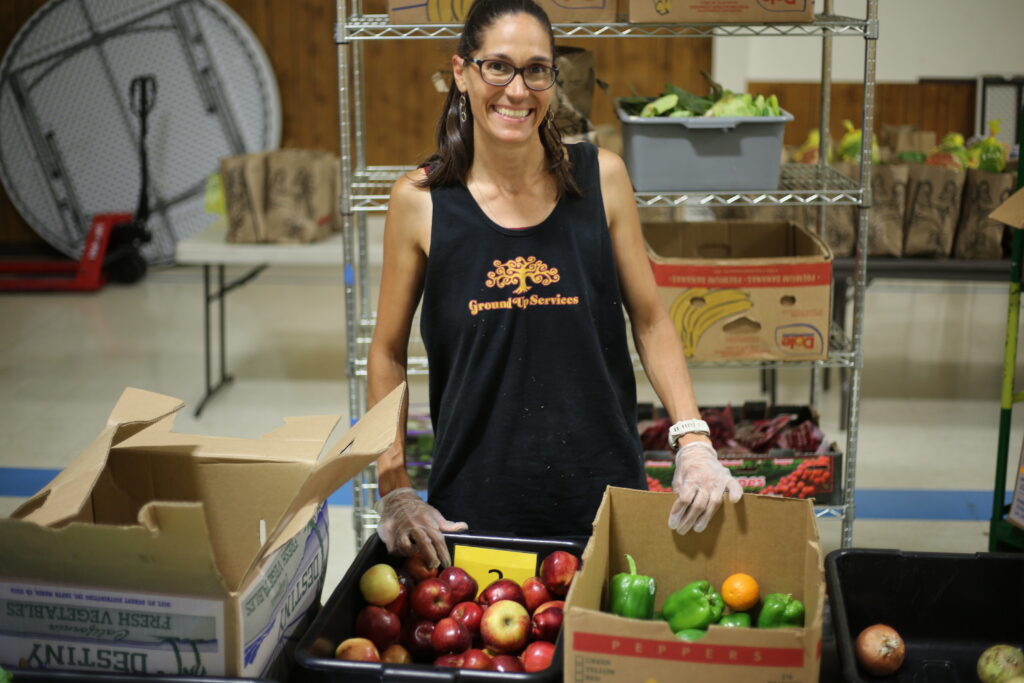
Sorting fresh produce is one of the many jobs of the pantry staff 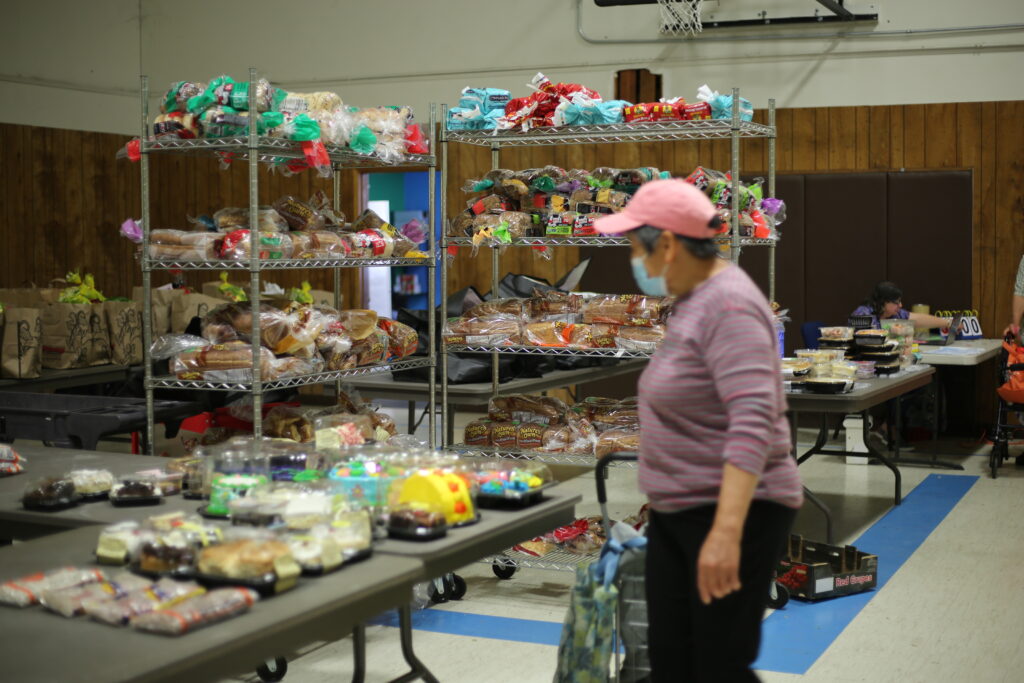
So many choices! 
Selecting the perfect egg 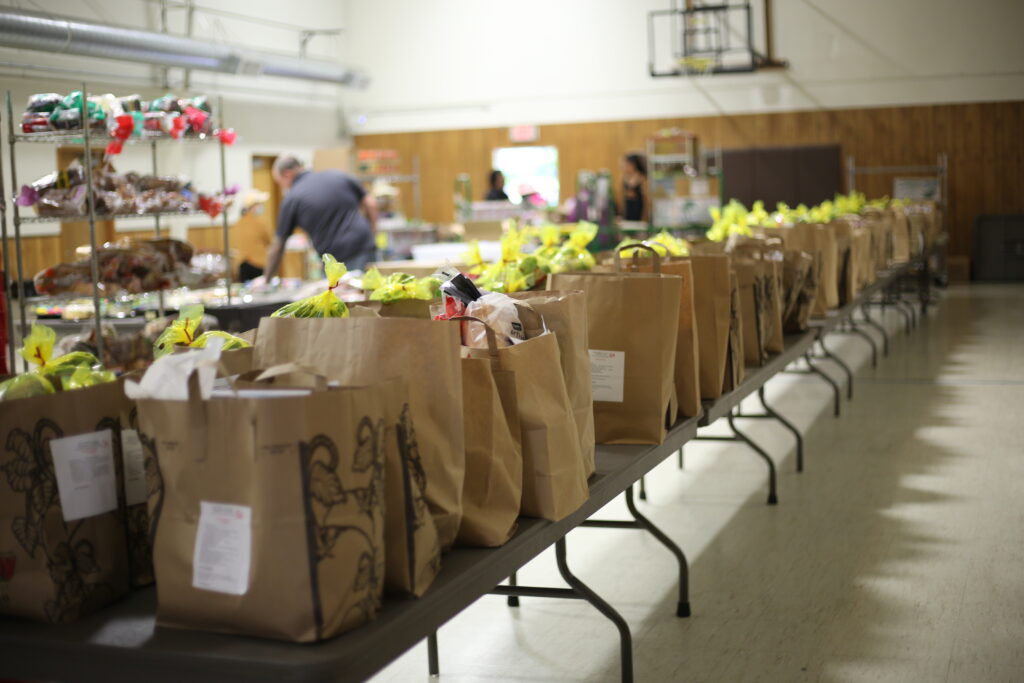
Pre-ordered food bags packed and ready for distribution 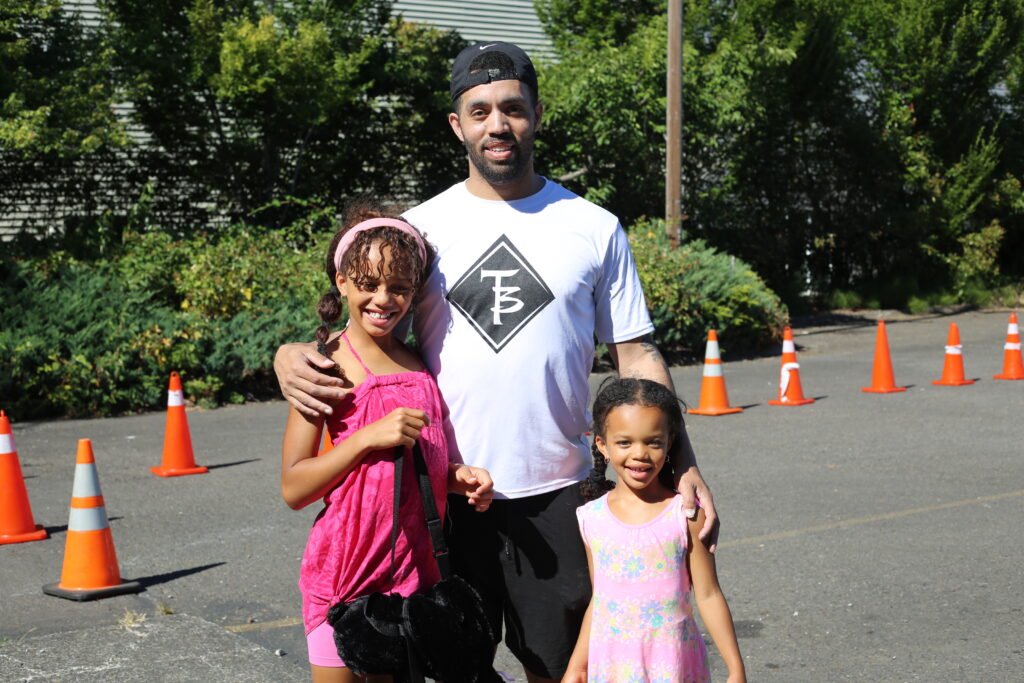
Portland Open Bible Pastor Aaron Brown, with two nieces 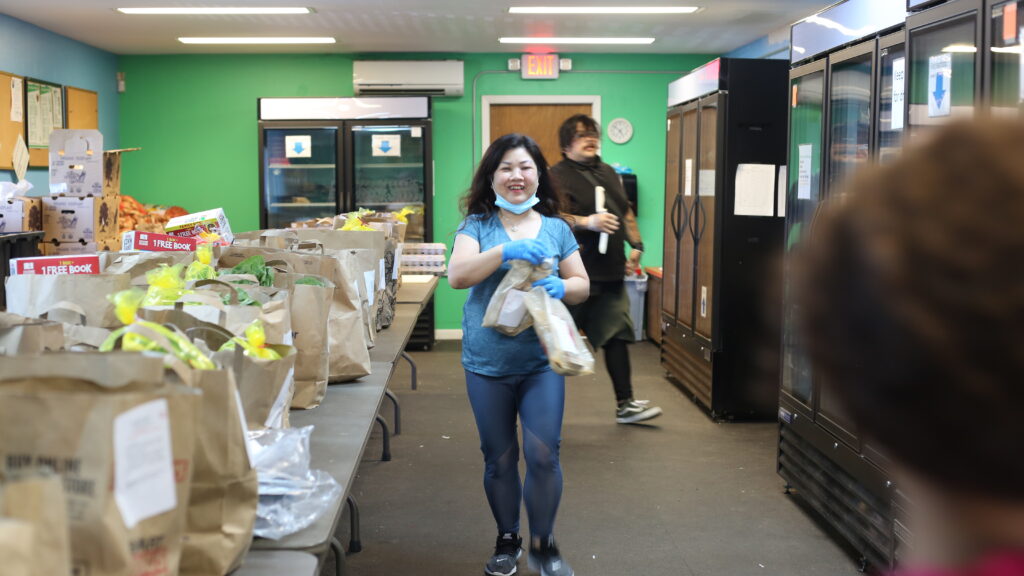
Pantry volunteers joyfully prepare food orders 
Bountiful pantry resources 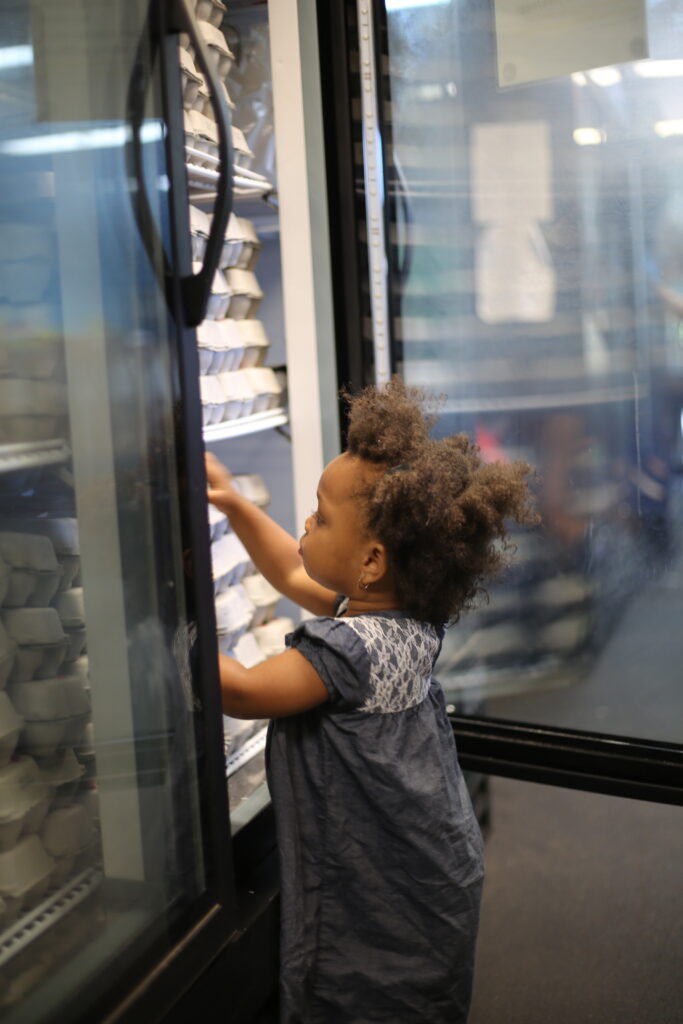
Food education (including how to select quality, fresh ingredients) is part of the pantry’s mission 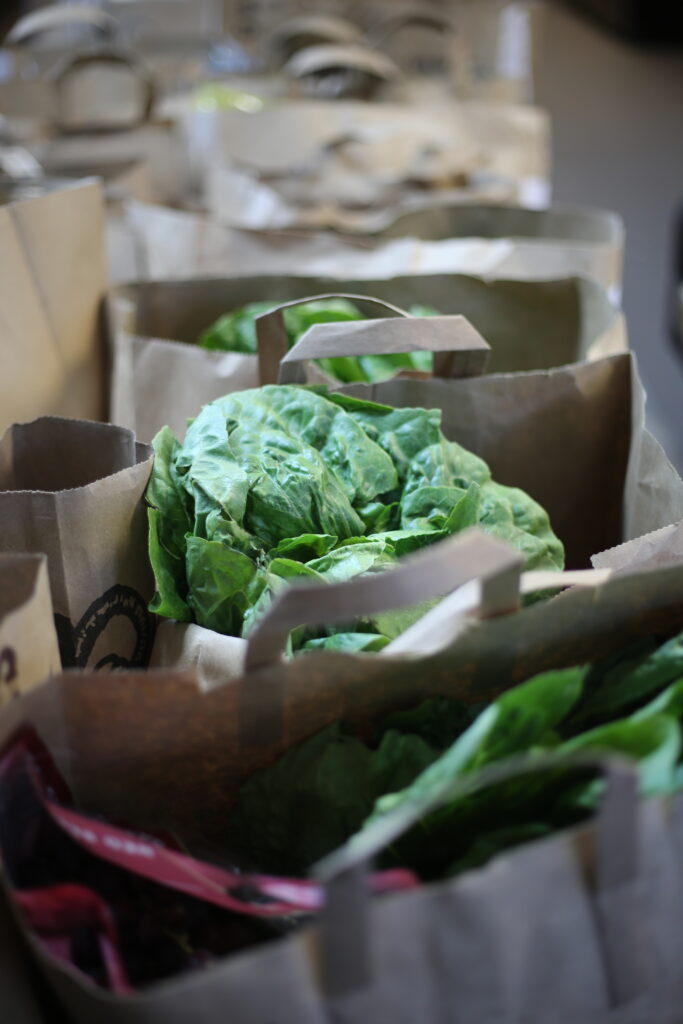
Fresh lettuce! 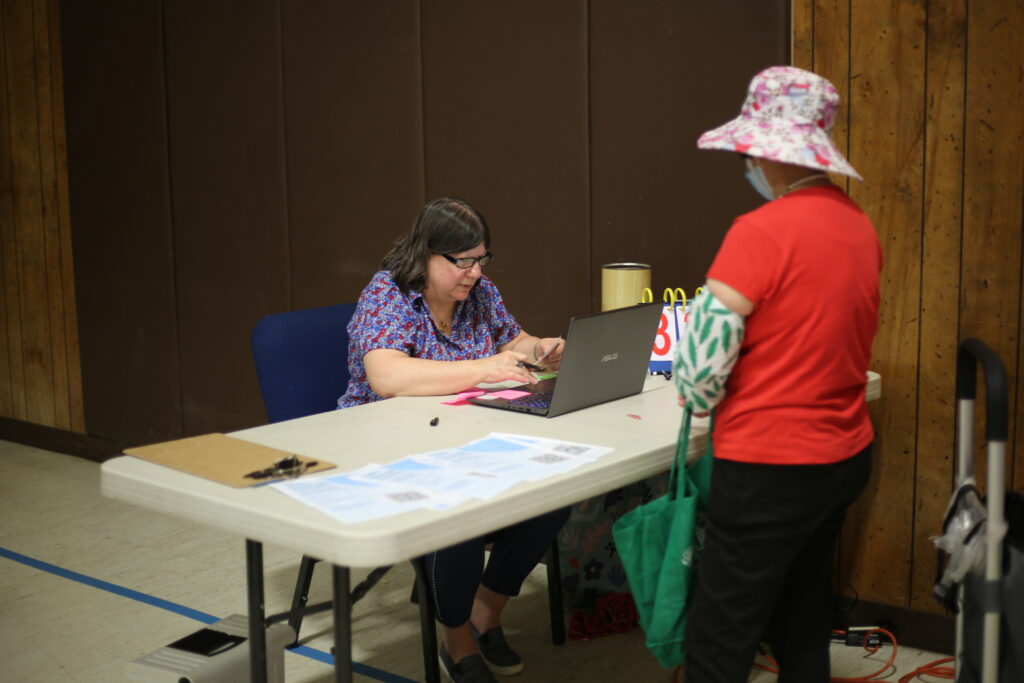
Members of the neighborhood check in to receive their weekly food 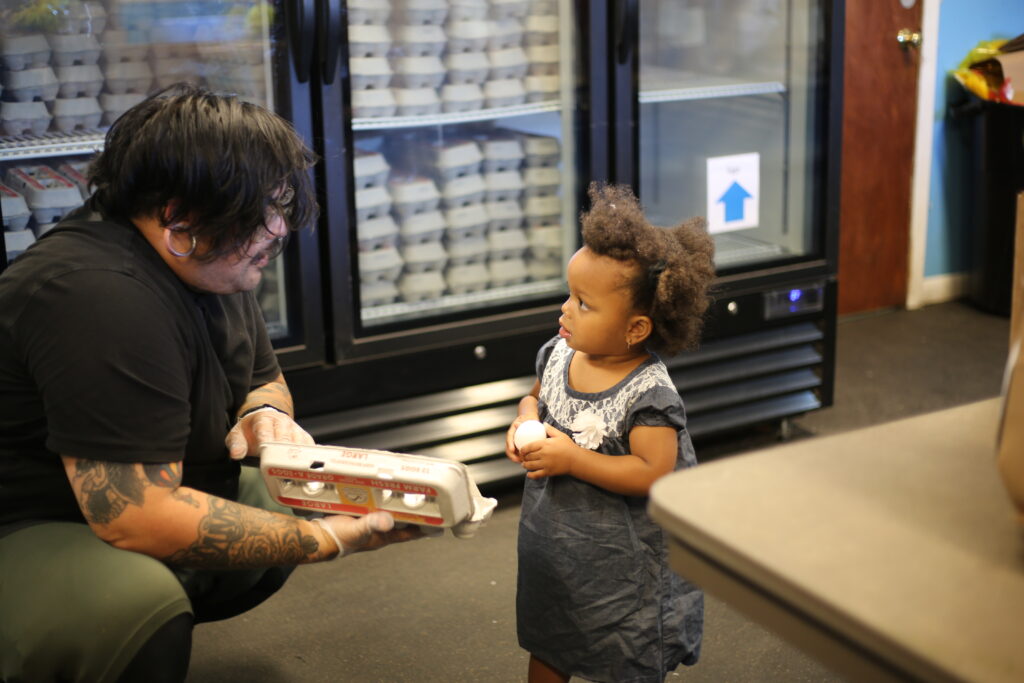
Pantry days are a weekly highlight for people of all ages 
Pantry staff hand out fresh produce to members of the neighborhood
To learn more about The Community Table, check out these videos:
About the Author
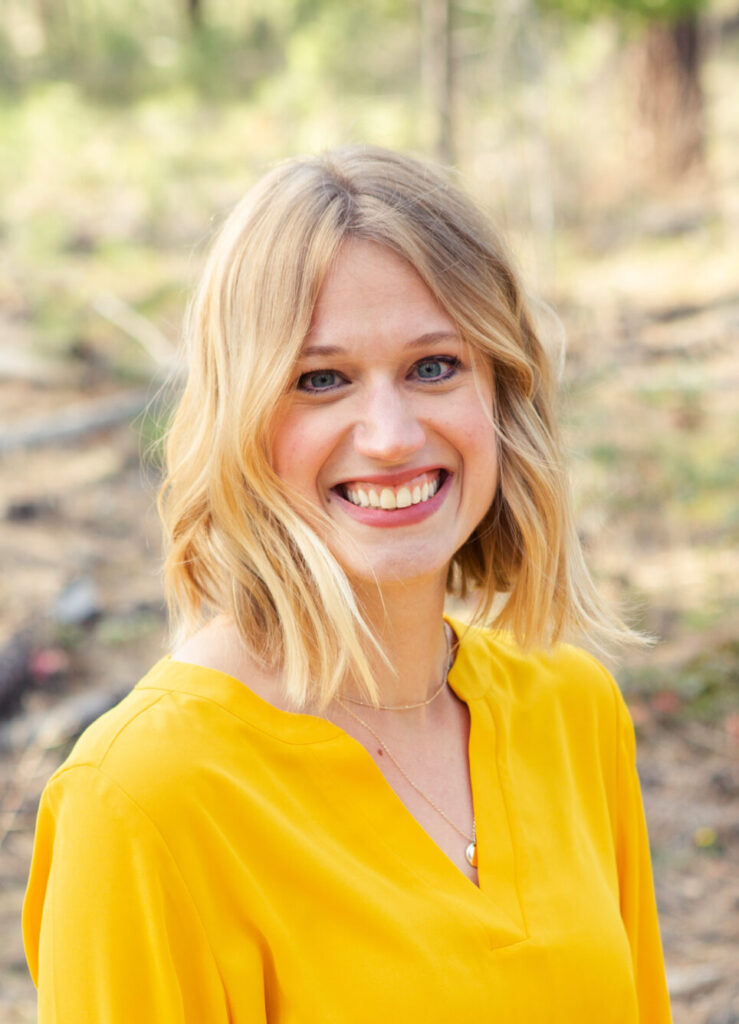
Hannah Bemis
Hannah Bemis currently serves as the Community Pastor at Turning Point Church in Spokane, Washington. She’s always wanted to do too many things when she grows up, and God has been kind enough to let her do most of them in different seasons. After seasons of mothering, teaching, writing, and staff pastoring, Hannah’s most recent adventures include serving as the Editor and Director of Message of the Open Bible and preparing to plant and co-pastor a church in Newberg, Oregon with her husband, Jordan. After Jesus and all her favorite people, she spends the remainder of her passion on pizza and dark chocolate, in equal measure.




